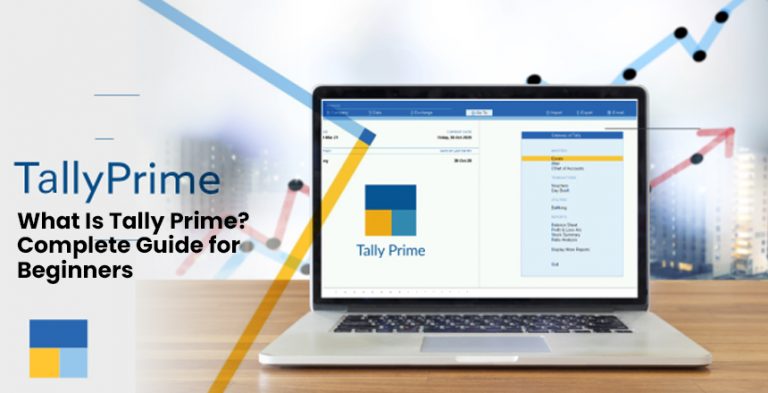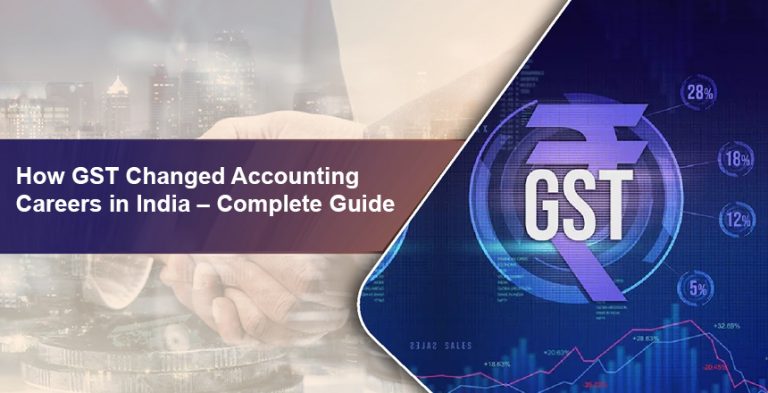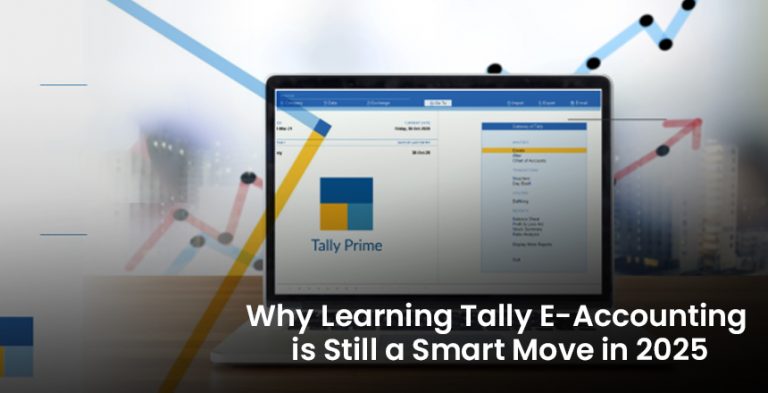Artificial Intelligence (AI) is transforming the landscape of most industries, and the taxation sector could not be an exception. In India, where GST (Goods and Services Tax) has transformed the way tax is paid, the AI is serving an important purpose of easing, harmonizing, and legalizing the whole procedure of filling and even consultancy. Application areas include automated data processing to smart compliance warnings, which AI is changing the way companies and practitioners plan and administer taxes.
Stepping Out Of Old Taxation Habits
Prior to the introduction of AI to the tax environment, the GST was associated with substantial manual work. Accountants would have to filter through thick data sets, verify entries with each other, check the matching of the invoice as well as make sure the invoice filing was done in time which all played significantly with time and were subject to human error. The AI revolution has changed such monotonous routines by providing intelligent automation, making the process of GST filing faster, more precise, and enhancing decision-making in regard to tax consultants.
Intelligent Data Reconciliation (AI)
Reconciling the input and output data under the tax is one of the most challenging aspects in the GST compliance. Delay in claiming Input Tax Credit (ITC) by businesses Delays in claiming Input Tax Credit (ITC) by the businesses crop up regarding the mismatches which arise in the GSTR-1 and GSTR-2A/2B. This issue has become a breeze to AI-based systems. Such tools have the potential to automatically compare thousands of bills in seconds, highlight discrepancies and provide a plan of actions. This is not only time-saving but also lesser financial concern and quicker returns of businesses.
Automated Compliance: Easier, and More Reliable
GST compliance is becoming simple with AI. Smart tax programs have even reached the point where they are able to produce and file GST returns, monitor time deadlines, track real-time tax changes and even file returns with little input by human beings. These systems abide by set rules and government updates and they do not need to be checked all the time. In the case of tax consultants, it implies less drudgery work and increased capacity to provide planning services to the customers.
Error ID before the Fact
A tax professional as experienced as he may be is prone to overlooking mistakes in a volcano of figures. That is where AI excels. AI applications will read data searching anomalies, like non-correct taxation rates, repetition of the invoices or very high claims. Early detection of these problems will help the businesses to evade penalties, minimize audit risk, and have an impeccable compliance history. Such initiative introduces additional confidence to a client and increases the value of a consultant.
Personalized Tax Planning With AI Information
In addition to compliance, tax advisory services are also being transformed by AI. Machine learning is used in modern AI platforms to examine financial behavior, as well as past data, to offer tax planning recommendations tailored to the user. These applications have the capability of predicting upcoming obligations, proposing the related tax-planning, and assisting corporations in optimizing their GST configurations. This information can help the tax professionals offer more personalized and informative services to his or her customers, creating a stronger relationship in the long run.
An instant support by AI-Powered Chatbots
Chatbots powered by artificial intelligence are turning into an inevitable fix when it comes to providing basic GST-related questions. These virtual assistants can be of help round the clock and can help instruct the users about the GST procedures, documentation and deadlines. This immediate assistance benefits small business owners particularly since the worry of resorting to full-time consultants to fix minor problems will be curbed. On the part of consultancy companies, AI chatbots help minimize the workload and maintain stable interactions with clients.
Prevention against Fraud and Regulatory Compliance
Tax fraud and tax evasion is an old interest of the tax departments. Using AI, such activities are getting easier to detect early on. With huge amounts of data to analyze, AI systems can detect the potential patterns of activities and identify suspicious transactions, false invoices, or understated revenue. Government agencies are also implementing AI to be able to detect hot cases that require their use to conduct an audit. This makes the businesses more likely to be compliant since they know that smart systems are ever watchful.
Taking Back Our Power to the Tax Professionals and Firms
AI is not replacing tax professionals but complementing what they do. Automation in tasks that can be repeated allow tax consultants to avoid spending time in low-value services and turn to high-value services, such as litigation support, audit, and strategic planning. AI applications also enable companies to scale activities and not have to increase the size of their workforce. Fitting AI into their workflow, tax professionals can offer more precise, quick, and customized services providing them with a competitive advantage.
Future of Artificial Intelligence in the Indian Taxation Society
The tax environment is also going more digital in India, due to the spread of e-invoicing, QR codes, and real-time data verification and, in this context, AI will assume more responsibility. Some of the future potential updates will be the AI enhanced voice assistants in filing a tax, the enhanced predictive tools in managing risks, and a closer tie-up of businesses, banks, and GSTN portal. As a tax consultant, it is no longer a choice to keep in touch with the latest AI developments; otherwise, you will not be able to survive and prosper.
Final Thoughts
Artificial Intelligence can no longer be treated as novel merely as an idea whose implementation is going to be observed in several decades, it has already become a reality in India that is transforming the way GST is being filed and the way in which tax consultants perform their work. Assisting in real-time verification of data, or detecting fraud, or automating the process of filing returns and introducing intelligent advisory services, AI is making taxation a leaner, more intelligent, and swifter practice. The early integration of AI by consultants and businesses help them be in a good position in the long-run of the digital-first taxing world.








